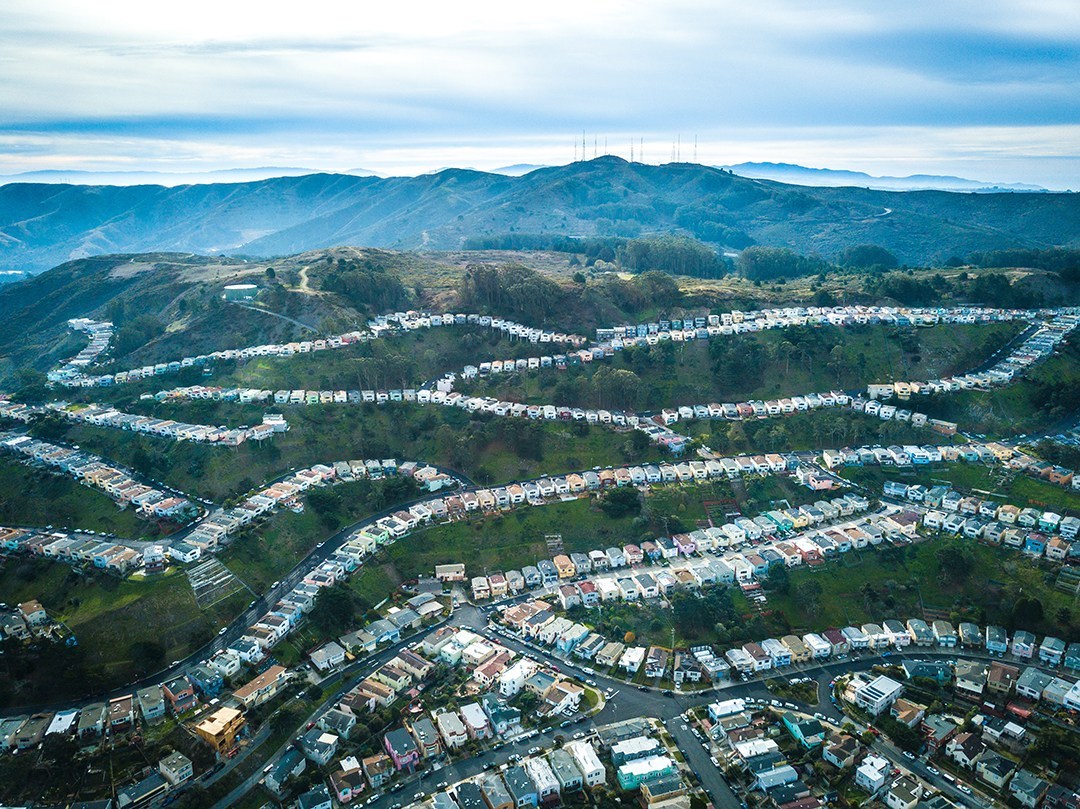
So why is it so hard to be a good neighbor around here?
By Aude Anquetil, Director of Strategic Partnerships at Magnify Community.
This morning, my next door neighbor was casually chatting with me. I suspect she is struggling with some form of mental illness but we always have nice conversations. Today, she was telling me that her sister’s new boyfriend kicked her out of the house, and that she was sleeping on the streets. Right there, a block from my house. A person I know, sleeping on the streets, in my plain sight. She said it with such a natural tone that it struck me. Have we all become numb to homelessness around here? When has all this become OK?
Over the years, my work has led me to interact with many underserved and unseen communities: in France, India, Cambodia. And now here in the Bay Area. When we moved 3 years ago, we settled in Daly City which is the place we've called home since. Many people ask me “So how do you like it there?” as if I lived in a foreign country that they had never set foot in. I wonder why that is. It’s a 15 minute drive from San Francisco, a 45 min drive from Los Altos. But it does often feel like worlds apart.
The median income here is $86,000 for a household. This could seem like a lot of money if the U.S Department of Housing and Urban Development hadn’t recently released a definition of low income for San Mateo county set at $117,400 for a household of 4.
This morning I was at a presentation of the Big Lift, an initiative launched 4 years ago to improve reading proficiency in San Mateo County. Here, 41% of third graders cannot read proficiently and the lifelong negative consequences of gaps in early childhood learning has been widely documented. So it’s a cycle that needs to be broken. This incredible coalition of over 300 organizations - libraries, government, nonprofits, business leaders - are teaming up to address this issue at scale and are seeing promising results.
At Magnify Community, we’re trying to be advocates of a more positive narrative and approach to addressing local issues through philanthropic giving. Because we truly believe solutions exist, and we can make Silicon Valley a place more welcoming and equitable for all. I won’t lie, it’s hard. It’s hard to maintain a positive mindset around solutions when the scale of all of the issues can feel so overwhelming. Like this morning.
I will say that I have met incredible organizations here that are making a profound difference in the lives of people left behind. The Daly City Partnership for example provides basic safety net services for people in need of temporary assistance: hotel vouchers, food, free clothing, a friendly and respectful ear. The individuals powering these organizations are some of the most dedicated people I've ever met. They were the first I called when my neighbor reached out to me. The Daly City Youth Health Center also provides care and counseling to uninsured or low insured youth from Daly City and surrounding cities. Youth who are struggling with mental health, housing, substance abuse... and who rarely have someone to turn too, or coverage to pay. These are some of the people living next door to me, to us.
I realize how fortunate I am to know about these organizations, because it empowers me to help. A few weeks back, we met these organizations with a group of some of the leading Foundations in Silicon Valley to learn about their work. It made it easy for me to reach out. However, I couldn’t help but thinking about the process that went on in my head. It was easy for me to call them to refer a neighbor. But then I thought: Should I invite her into my home? Should I prepare a hot meal? Should I give her money? These are all resources I have to share. But despite all my best intentions, the feeling that stayed with me was uneasiness. If I do open my home, what happens then? Where does this take me? Where does it stop? Can I make it stop?
I’ve been working with philanthropists for over a decade. I somehow thought I understood the psychological mechanics of giving after all these years. And then it struck me. These are the barriers we have to solve, at Magnify Community and beyond. The barrier of knowing who to call when you need to help a friend, or want to participate in addressing local issues like homelessness or others. The barrier of understanding that once you start that journey, you don’t necessarily know where it will take you. And what we can do to help people feel comfortable with that. And how we can make it feel joyful, impactful, rewarding and useful.
Connectedness is what makes us human, it’s what makes us empathetic, it’s what makes us good neighbors. When I moved here, I had the chance to connect with leaders who nudged me, challenged me to get out of my comfort zone and try to understand the reality of people who are living next door to us, but in parallel realities. And to find ways I could help.
Amazing organizations are working here everyday to defy the odds. Find the ones that resonate, start conversations with your neighbors. And get on your journey. Now.
Original post on Linkedin
